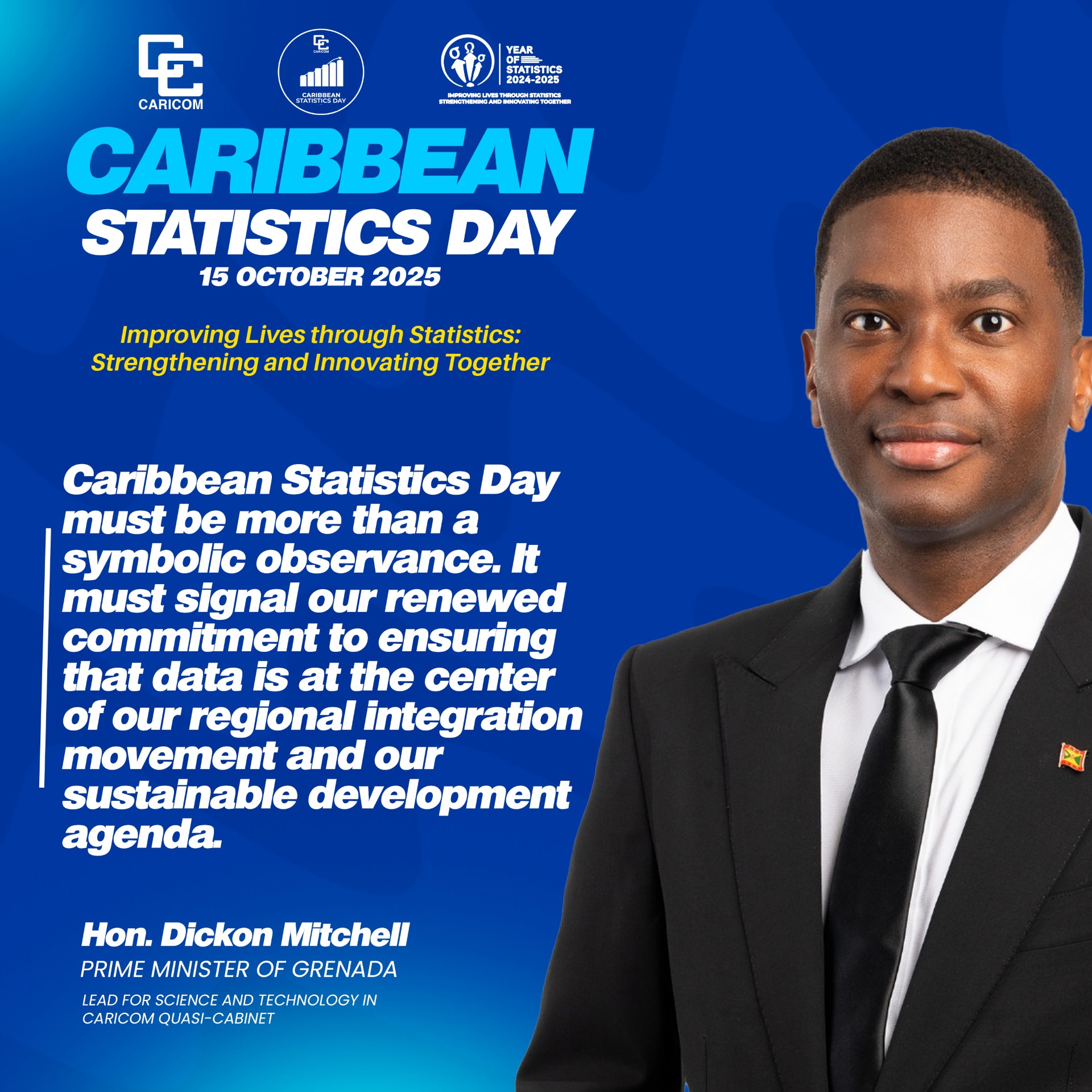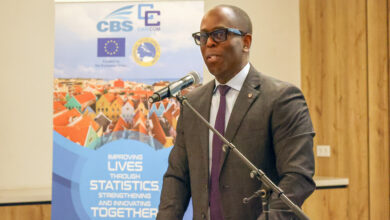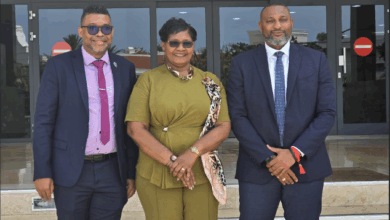As we mark the 17th Observance of Caribbean Statistics Day, this year’s theme – “Improving Lives through Statistics, Strengthening and Innovating Together” – resonates deeply with the Region’s enduring commitment to data-driven development.
This theme is not only timely, it is essential. It reminds us that statistics form the backbone of evidence-based decision-making, regional integration, and sustainable development. Reliable and timely data empowers us to measure progress, evaluate policies, and ensure that the benefits of growth are equitably shared among our citizens.
As we navigate complex global and regional challenges – from climate resilience to economic transformation – robust statistical systems are more critical than ever. They help us understand our realities, shape responsive policies, and build a future grounded in transparency, innovation, and inclusivity.
Let us use this observance not only to celebrate our achievements but to reaffirm our collective commitment to strengthening statistical capacity across the Caribbean. Together, through collaboration and innovation, we can ensure that statistics continue to improve lives and guide our path forward.
At the 80th Session of United Nations General Assembly just weeks ago, I reminded the world that small island states like ours live within paradoxes. Our Caribbean Community is highly vulnerable to external shocks, yet we are also reservoirs of resilience and innovation. Education, digital literacy, and the harnessing of science and technology must be the instruments through which we transform these paradoxes into partnerships and pathways of opportunities.
Across our Region, we are seeing encouraging progress in statistical development. For small island states like ours, partnerships bring the reach and resources we cannot muster alone. With the support of international development partners, we have made some progress in advancing our regional and subregional strategies for the development of statistics.
Statistical offices are now modernising their operations; capacity-building initiatives are being rolled out, and innovative projects are being implemented. Capacity-building projects and key partnerships with the CARICOM Secretariat, the United Nations, European Union, the World Bank, the IMF, the Caribbean Development Bank, , Eastern Caribbean Central Bank and the Organisation for Eastern Caribbean States (OECS), particularly under the OECS Data for Decision-Making Project, has been a catalyst in many countries, creating stronger systems for data collection, analysis and dissemination.
Grenada has been proud to contribute to these regional efforts. At home, we have invested in digitising our statistical records, strengthening institutional frameworks, adopting a system of quality improvements, and building technical expertise. More importantly, we are embedding the use of data in the design and implementation of policies, whether in social protection, renewable energy, climate adaptation, or trade facilitation. But I emphasise that this is not a Grenada story alone. It is part of a wider CARICOM commitment to ensure that statistics serve the needs of every citizen in every Member State.
As the CARICOM Lead Head for Science and Technology, I see a critical and exciting intersection between advanced technologies and statistics. Tools such as artificial intelligence, remote sensing, geographic information systems (GIS), and advanced modelling are no longer futuristic concepts—they are present-day solutions with the power to revolutionise how we collect, analyse, and apply data to improve lives across the Region.
Imagine a Caribbean where climate models guide our adaptation strategies; agricultural data strengthens regional food security, and real-time labour statistics inform education and training policies. This is not a distant dream – it is a tangible vision within our reach. By embracing innovation and fostering collaboration, we can build a data ecosystem that is responsive, resilient, and inclusive.
Statistics are not solely the domain of governments. For Grenada and the wider CARICOM Region, open access to data empowers civil society, academia, and the private sector to play an active role in shaping our development. When data is transparent and accessible, it fosters accountability, encourages innovation, and enables meaningful contributions to national and regional progress.
Equally important is the availability of disaggregated data. By capturing realities across gender, geography, income, and other dimensions, we ensure that no group remains invisible in our policy responses. Inclusive data is the foundation of inclusive development – it allows us to design interventions that are equitable, targeted, and effective.
The stakes for CARICOM are high. Climate change, economic shocks, health crises, and shifting global trade patterns all require us to anticipate, adapt, and act quickly. With robust statistics, they can be proactive, strategic, and transformative.
Colleagues, I reaffirm my commitment that Grenada will continue to sow the seeds of innovation and be remain steadfast in advocating for the strengthening of our regional statistical systems. We will champion investment in technology and human resource development. We will support the harmonisation of standards, encourage the use of advanced technologies, and promote seamless data sharing across our borders.
Caribbean Statistics Day must be more than a symbolic observance. It must signal our renewed commitment to ensuring that data is at the center of our regional integration movement and our sustainable development agenda. Together, we can create a Caribbean Community where every policy is informed by evidence, every community benefits from innovation, and every citizen feels the impact of progress.
Let us strengthen, let us innovate, and let us use statistics to improve the lives of all Caribbean people.
Thank you.






